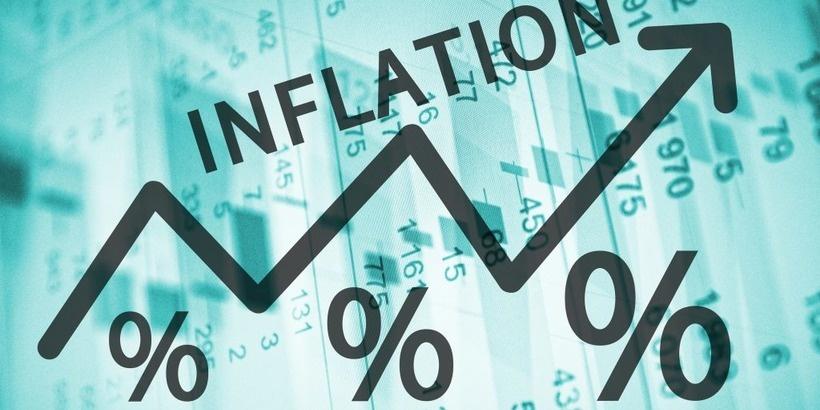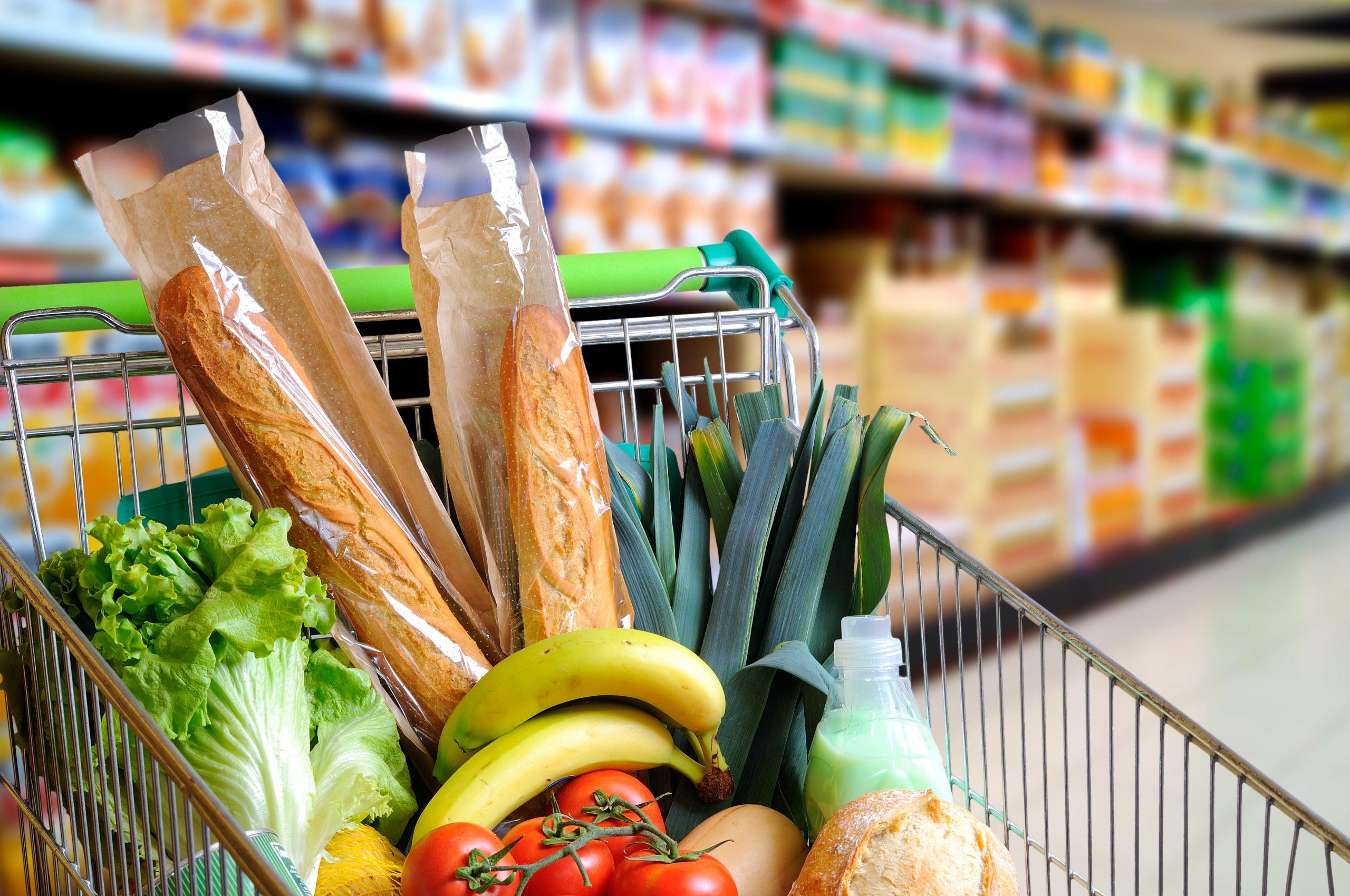Bloomberg forecasts inflation rate decline, but food prices still rise in Azerbaijan Review by Caliber.Az
The unprecedented rise in consumer prices in 2021-2022 was a backdrop to the recovery of the global economy after the COVID-19 pandemic, as well as a consequence of the energy and food crises. The general rise in prices covered almost all raw materials, and components for production, and food, while the Russian-Ukrainian war further accelerated the inflation rate. Today, high inflation rates are the biggest threat not only to developing countries, but this negative situation is also felt in the US, the EU, and other developed regions of the world. The food products greatly increased in prices in Azerbaijan, which also faced the imported inflation factor. According to the Azerbaijani State Statistics Committee, the average annual food inflation rate increased to 17.9 per cent during the five months of 2022.
The reason for the global inflation surge in 2021 was the infusion of several trillion US dollars of unsecured liquidity amid lowering interest rates of central banks to extremely low levels in the US, the EU, etc.
The cheap money policy revived the global economy in the first half of 2021 but caused a number of side effects, the worst of which was the level of consumer price growth that was unprecedented in the last decade.
This problem is most acute in the food segment and in the energy sector. The inflation has begun to intensify since February 24, 2022, as a result of the Russian-Ukrainian war and the sanctions imposed by the West against the Russian Federation.
The fact that inflation is the most important problem among the state ones has been recently recognised by US President Joe Biden while speaking on the ABC television TV channel.
“Inflation is the curse of our existence. It mainly affects food and fuel prices,” the US president noted.
Earlier, US Secretary of the Treasury Janet Yellen has said at the hearings in the Senate Committee on Finance of the Congress that inflation rate in the US will remain high for the foreseeable future, and at the current stage, this is the country's main economic problem.
The US was one of the most stable countries among the biggest economies in the world in the recent past. The annual price growth did not exceed an average of 1.5-2 per cent thanks to the efforts of the Federal Reserve System (Fed), but inflation in the US exceeded 8.3 per cent by April 2022.
The situation is also severe in Europe. For example, inflation in the UK reached a record level for 40 years - having increased to 9 per cent in April 2022. Consumer prices in France by May 2022 also reached record levels for this country - 5.8 per cent in annual terms.
However, Eastern Europe countries experienced the biggest damage from the energy and food crises in the first third of 2022.
The consumer prices increased by almost 19 per cent in Estonia, by 16.8 per cent in Lithuania, by 16 per cent in the Czech Republic, 14.4 per cent in Bulgaria, 13.8 per cent in Romania, 13 per cent in Latvia and 12.4 per cent in Poland during the reporting period.
Rising fuel and food products have become a problem not only for North America and the EU. The multi-year high level of consumer prices is also observed in the developing economies of all continents.
In general, according to the latest forecasts of the International Monetary Fund (IMF), the inflation rate in developing economies this year will average 8.7 per cent, but this level was exceeded in several countries long ago.
Türkiye is in the lead. The inflationary growth in the neighboring country amounted to 73.5 per cent in May 2022, while in Argentina – 58 per cent in late April 2022.
Argentina is followed by Iran with a 40 per cent increase in consumer prices by early May 2022, which is the highest level since 1994.
A very high dynamics of consumer price growth (11.5 per cent in May 2022) was observed in the fifth economy of South America - Chile, while on the African continent, Ghana ranks first place with a 27.6 per cent increase in prices in annual terms.

Inflation has also greatly increased in the post-Soviet area after the beginning of the Russian-Ukrainian war. The worst situation is in Ukraine, which is under a transport blockade. Its economy is systematically destroyed as a result of bombing and missile attacks.
Thus, the World Bank (WB) has recently worsened the inflation forecast in Ukraine to 20 per cent for the current year. The prices rose by 11.80 per cent in Russia, which is under sanctions pressure, from January through May 2022, while the annual inflation rate reached 17.1 per cent.
Double-digit price increases were observed in Georgia, and Belarus. Relatively high inflation is observed in the Central Asian countries.
Proceeding from the official statistics, a 9 per cent inflation rate was observed in Armenia. Some independent sources said that consumer price growth should be estimated in the double digits.
In general, the consequences of the war and anti-Russian sanctions are much vivid due to the dependence of a number of post-Soviet countries on the supply of fuel, fertilizers, as well as grain, oilseeds, and other types of food from Ukraine, Russia, and Belarus.
In particular, the situation on the CIS food market has greatly worsened after the beginning of the war in Ukraine and the restricted wheat and other food supplies through the ports of the Azov and Black Seas, the introduction of quotas and protective duties on the export of grain, oilseeds and a number of other basic crops in the Russian Federation and Kazakhstan.
The global inflationary surge, and in particular, the general rise in prices in the post-Soviet countries, as well as in Türkiye and Iran, Azerbaijan's main trading partners, also affected the growth of consumer prices in Azerbaijan.
Thus, according to the recent data from the Azerbaijani State Statistics Committee, the average annual inflation amounted to 12.6 per cent by late May 2022, while the average annual increase in food prices for the reporting period amounted to 17.9 per cent.
According to the State Statistics Committee, a slight decrease in inflation rates was observed in May 2022, however, the traditional decline in prices for seasonal fruits and vegetables in late spring and early summer has not been observed this year. Only vegetables and eggs fell in price in May 2022 by 1.6 per cent and 8.4 per cent, respectively.
Moreover, the imported inflation factor dominates the domestic food market of the country.
“The growth rate of consumer prices in Azerbaijan exceeds forecast indicators, and most of it is imported inflation,” Azerbaijani Deputy Finance Minister Azer Bayramov has recently said while discussing the bill on the execution of the Azerbaijani state budget for 2021.
According to the government’s estimates, the share of imported food products in the overall structure of inflation exceeds 60 per cent. The matter rests not only in food products directly imported into the country. The factor of imported inflation also affects the growth of production costs at local processing and food enterprises.
This is connected with the rise in the cost of imported agricultural raw materials, highly productive seeds and breeding herds, semi-finished products, animal feed, food additives, vitamins, medicines and vaccines, packing materials and other components for canning factories, which are widely used in production processes by the domestic agro-industrial complex and the food enterprises.

It is impossible to influence the factor of global price growth due to objective reasons. The Azerbaijani government has only indirect measures among anti-inflationary tools that minimize the consequences of the global rise in price.
The Central Bank of Azerbaijan raised the refinancing rate by several times to 7.75 per cent, zeroed customs duties on the import of grain, flour, and animal feed into the country, and, on the contrary, imposed quotas and restrictions on the export of several strategically important food products and agricultural raw materials since late 2021 and in 2022.
The State Reserves Agency has been established in Azerbaijan. The food stock structure is being created. A new mechanism, aimed at expanding the sale of agricultural and other products of small and medium businesses in retail companies, its advertising and promotion, is being introduced through the Azerbaijan Small and Medium Business Development Agency.
Certain steps are being taken to combat the artificial rise in prices in the food market. It is planned to strengthen the fight against unfair competition and monopolisation of import supplies.
It is planned to increase investments in the processing and food sectors, reduce the cost of borrowings to localise new capacities, and increase subsidies to the agricultural sector, which ultimately should help improve the level of food security in the country as part of the package of reforms which are carried out by the Azerbaijani Ministry of Economy.
However, the effect of the abovementioned measures is mainly intended for the medium term, while the factor of imported inflation is exerting great pressure on the domestic market.
How long will this global negative situation last? This is a very complex and controversial question, as it is associated with many geopolitical and economic factors.
According to Bloomberg's recent analysis, the three main drivers of high inflation have begun to weaken, and there is a slight hope that the situation will change for the better for consumers around the world.
First, the spot freight rate for shipping containers has dropped by 26 per cent from its all-time high observed in September 2021. Second, fertiliser prices in North America are currently 24 per cent below the record level in March 2022 and will gradually spread to other continents.
Finally, the central banks of most countries start to raise interest rates to curb inflation, and there has also been a tendency to increase food production amid its high cost, and over time, the market glut will inevitably contribute to the stabilisation of global prices.
Although there is no need to talk about the restoration of pre-pandemic prices in the short-term period, experts close to Bloomberg think that the peak of inflation has already been passed.








